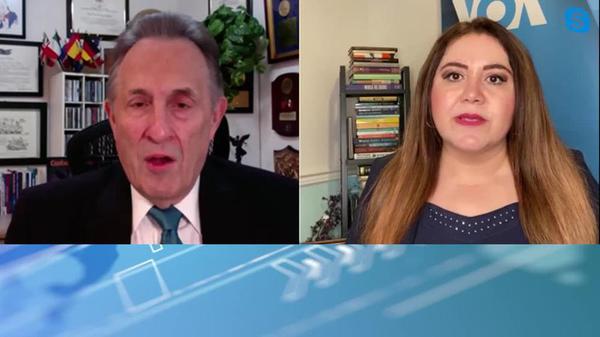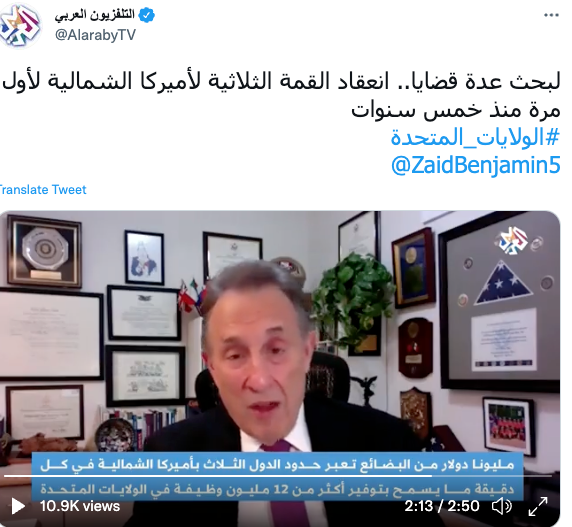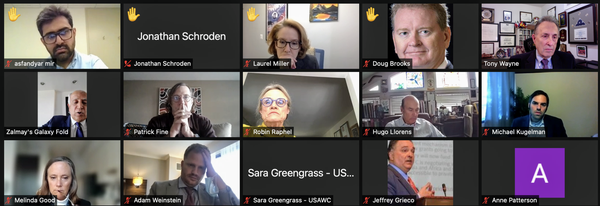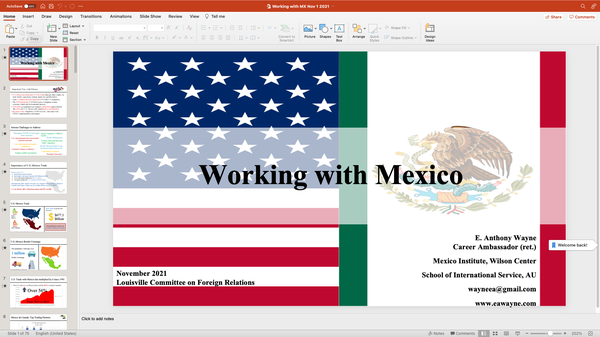Financial Times
•
November 15 2021
Interview: Biden’s electric vehicle plans spark outrage in Mexico and Canada
Biden’s electric vehicle plans spark outrage in Mexico and Canada
US trading partners insist that EV incentives breach terms of USMCA pact
Aime Williams and Christine Murray
Joe Biden will meet the leaders of Mexico and Canada this week as his plans to encourage Americans to buy electric cars made in the US have sparked furious opposition from two of America’s biggest trading partners.
The so-called three amigos summit, to be held at the White House, will take place for the first time since 2016, and comes as senior officials in Mexico City and Ottawa have complained that Biden’s plans to kickstart EV manufacturing in the US break international trade rules.
The opposition of some of the US’s closest allies to a flagship climate policy poses a political and diplomatic dilemma for Biden. The president has pledged to both lower tensions with trading partners following the tumultuous tenure of Donald Trump, and to use industrial policy to boost green industries like electric car manufacturing.
Although not yet passed into law, Biden’s broader $1.75tn legislative package contains proposals to offer a tax credit of $7,500 for electric vehicles made only in the US from 2026. Another $4,500 of tax credits are available for purchasing electric cars made with union labour.
On Friday, Mélanie Joly, Canada’s foreign minister, said she had raised the issue in a meeting with Antony Blinken, US secretary of state.
Mary Ng, Canada’s trade minister, has previously written to the Democratic and Republican leaders and to Katherine Tai, US trade representative, and Gina Raimondo, US commerce secretary, to convey Ottawa’s “very serious concerns” about the EV credits.
Ng’s office said that Washington’s proposed measures were “inconsistent” both with its obligations under USMCA, the updated North American trade deal struck between the three countries under Donald Trump, and with the rules of the World Trade Organization.
Tatiana Clouthier, Mexico’s economy minister, has sent her own letters to US legislators to ask that the proposals be altered to be brought in line with USMCA.
“It’s contradictory,” Clouthier said. “They would set off more [migration] with this kind of measure.”
Tai refused to be drawn this week on whether the US proposals contravened the USMCA trade agreement that she helped broker as the Democrats’ chief trade counsel in the House of Representatives.
“I’m aware of concerns that our trading partners have raised, and we care about these concerns,” she said.
Edward Alden, senior fellow at the Council on Foreign Relations, said the growing dispute between the three nations was “a big deal”.
“Everybody is moving at warp speed towards electric vehicles, and auto companies are now deciding where to locate their electric vehicle factories,” Alden said.
“This tax credit gives pretty strong incentives to locate final assembly in the United States so, not surprisingly, the Canadians and Mexicans are deeply worried about it.”
At present, the North American motor industry supply chain is scattered across all three countries. According to a recent report by the Congressional Research Service, some car parts cross the US, Mexican and Canadian borders “seven or eight times” before they are assembled into the final vehicle.
The US imports $29.4bn of car parts from Mexico and exports $5.9bn of parts to Canada, while exporting $11.7bn of completed vehicles to Canada and $67.5bn to Mexico. The CRS says that vehicle parts exported to Canada and Mexico often return to the US to be incorporated into the finished vehicles.
“It’s important to remember that the auto industry is the most quintessential North American, USMCA or Nafta industry,” said Tony Wayne, a former US ambassador to Mexico, referring to USMCA’s predecessor trade deal. “It’s more integrated than any other industry.”
Canada has suggested that US threats to rupture the motor industry’s integration at this time might backfire on the US.
Ng’s letter reminded US officials that Canada was “the only country” in the western hemisphere to have stores of all of the critical minerals needed to build an electric vehicle battery, and that Canada was therefore “necessary for the United States to achieve its electric vehicle objectives in the future”.
Mexico’s lower labour costs have long attracted carmakers, but sector leaders are already worried that it may not be able to attract a renewed investment boom in the shift to EVs. ...


























